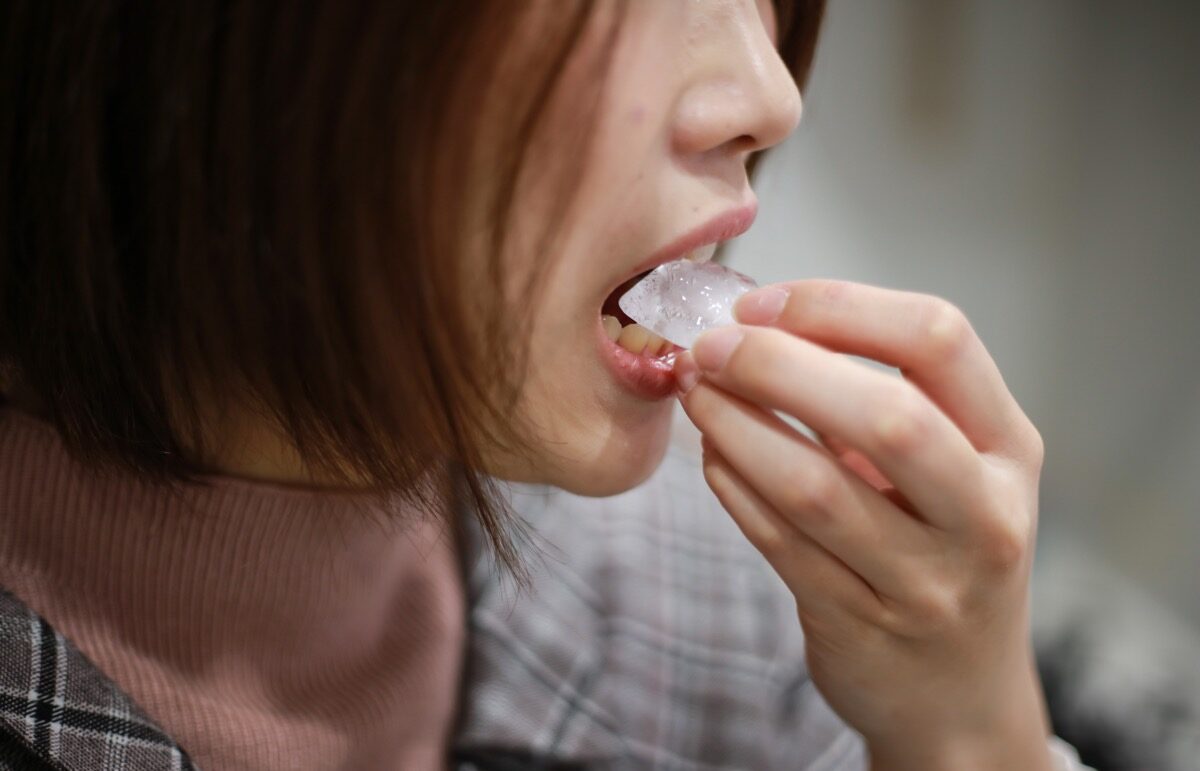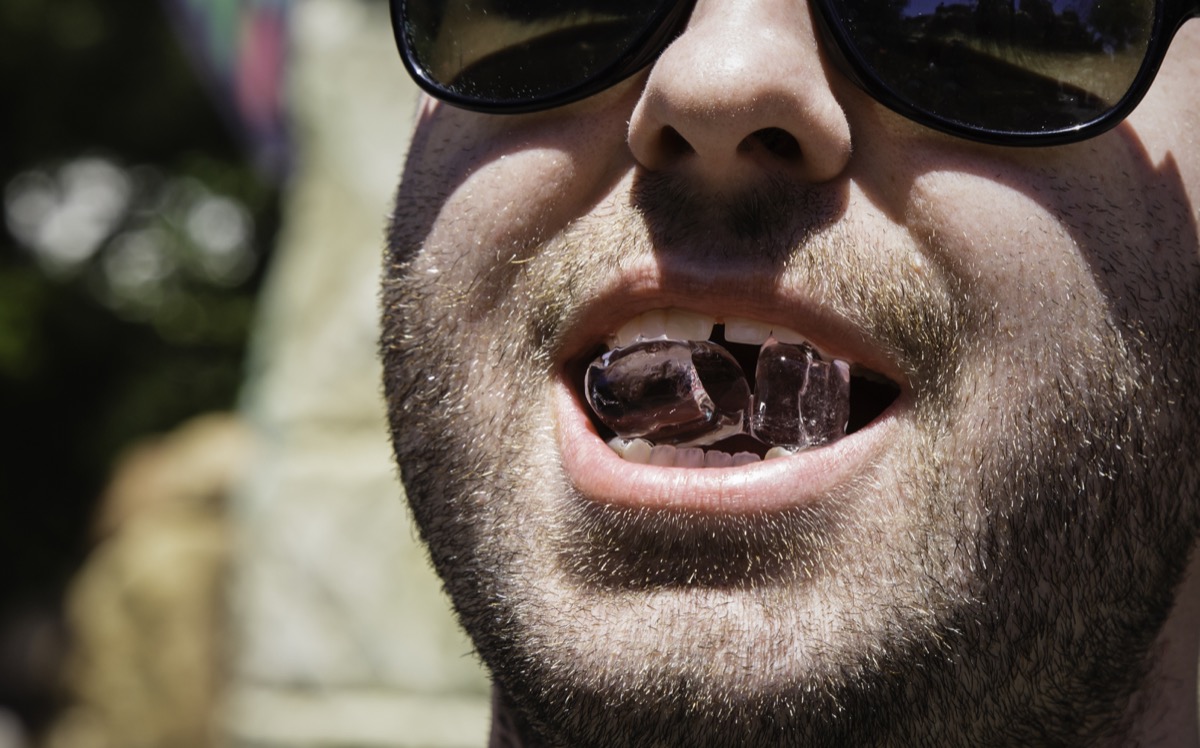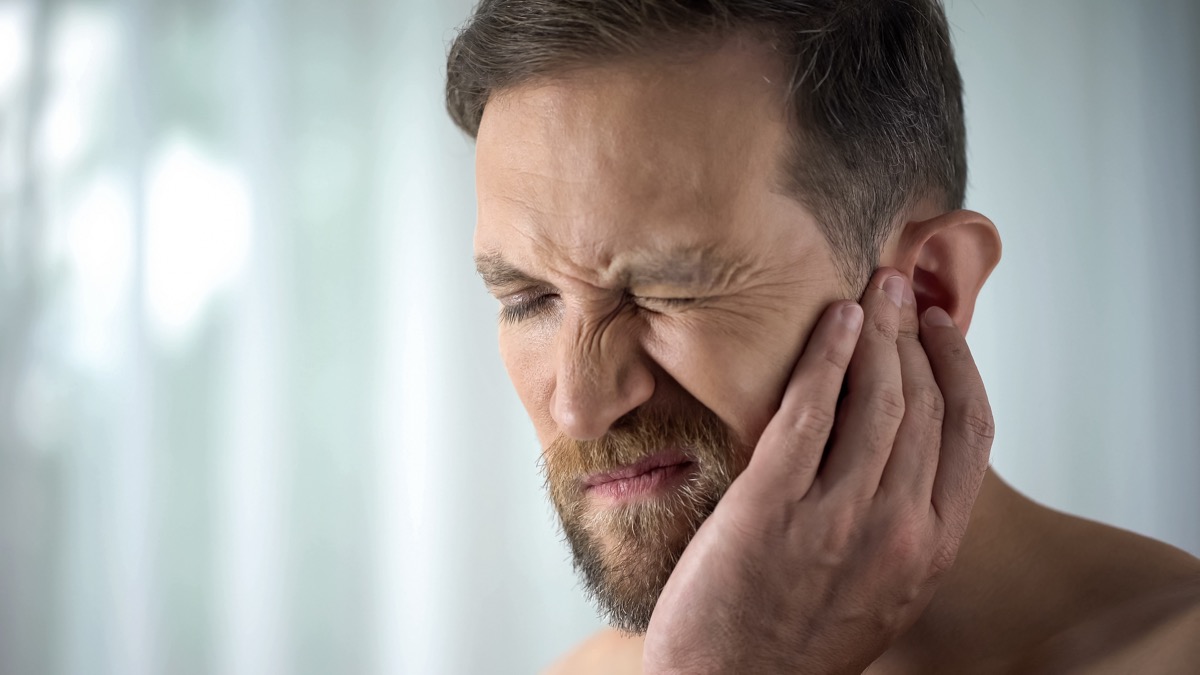Chewing the ice in your drink may seem like a harmless habit—after all, it’s just water—but dentists warn that doing so could lead to severe damage. “It can cause all sorts of problems, including cracked or chipped teeth and damage to the enamel, which could lead to future tooth sensitivity and pain,” says Steven Barefoot, DDS, a dentist at DentaQuest. Although these may not seem like major issues, they’re largely permanent. “The damage resulting from chewing ice is not reversible in adults, since enamel does not grow back,” says Joseph Salim, DMD, founder of Sutton Place Dental Associates. “Once damaged, the only solution to chipped teeth is veneers, dental bonding, or fillings.” And for more reasons to pay attention to your mouth, If You See This in Your Mouth, Your Heart Attack Risk Is High, Study Says. Sometimes when you bite into an ice cream cone or have a hot cup of tea, you experience a slight twinge of pain due to the abrupt change in temperatures. Dentists warn that if you chew on ice often, you could damage your enamel to the point that this becomes a more frequent occurrence. “As a result of enamel being damaged, both cold and hot foods may cause sharp or persistent pain,” Salim explains. And for more habits to avoid, check out these 25 Things You’re Doing That Would Horrify Your Dentist. Gum recision is irreversible and can lead to a host of other issues. “Your gums can recede as a result of the pressure from chewing on hard ice regularly,” Salim says. In addition to the fact that receded gums are often thought of as an undesirable cosmetic annoyance, gum recession can also cause more tooth sensitivity. “As your gums no longer protect your dental roots, you will feel hot and cold temperatures much more sharply,” he adds. And for more useful information delivered straight to your inbox, sign up for our daily newsletter.ae0fcc31ae342fd3a1346ebb1f342fcb Although your teeth are very strong, they’re sometimes no match for ice. “Ice is an incredibly strong material, and so is enamel. By repeatedly chewing on ice, you can cause small fracture lines in your teeth,” Salim says. “You may not notice it today or tomorrow, but if you chew ice frequently, your teeth will weaken and risk fracturing one day.” Your teeth are “porous and microscopic cracks do form. If ice is chewed, the enamel gets slightly brittle and the small, microscopic cracks expand and contract with the cold and the warming in the mouth,” explains former dentist Joseph Varno, DDS. The cracks aren’t all you have to worry about. “Bacteria are smaller than the cracks and love to hide there forming colonies. Chromogenic bacteria leave a trace we can see with the naked eye in that the crack appears brown or black,” he adds. And for more tooth advice, This Is How Often You Should Really Change Your Toothbrush, Dentists Say. Your enamel functions as a barrier for your teeth, Salim notes. When that barrier is diminished, you’ll hit dentin, just below the enamel, which is softer and more prone to dental decay. The ostensibly harmless habit “can end up irritating the soft tissue or the pulp, inside a tooth, and toothache can follow,” Salim says, offering yet another reason why chewing ice is a habit you need to ditch. And for symptoms to pay attention to, discover 13 Warning Signs Your Teeth Are Trying to Send You.




